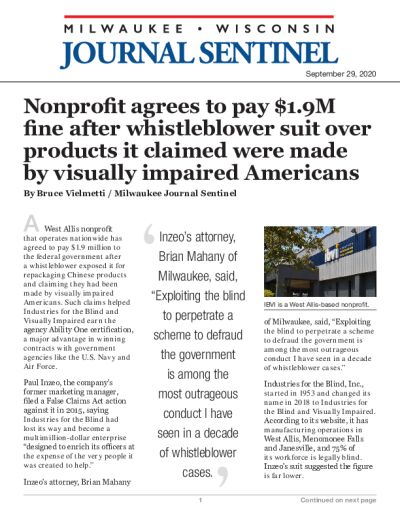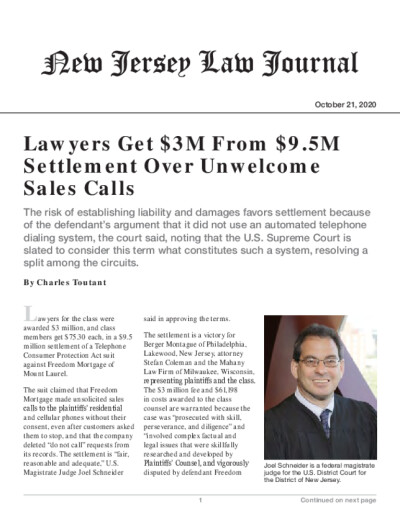We are one of the few law firms still handling stem cell lawsuits. The industry has become the wild west. It seems like there are more bad products out there than good. And some of the claims being tossed around would make a 19th century snake oil salesman blanche. In this post we look at Invitrx, the FDA and William Shatner.
As I write, William Shatner (we all remember him as Captain James T. Kirk of the Starship Enterprise) is hawking a cleaning device for his “sleep equipment.” Since retiring from the film industry, Shatner has become a parody of himself. (Apologies to any Trekkies that feel offended.)
As recently as last year Shatner was hawking stem cell therapy from a company called Invitrx. And that is the topic of today’s post. We will examine Shatner’s claims versus what the FDA found. You decide who is to be believed.
Last year Shatner announced to his 2.5 million Twitter followers that he was undergoing stem cell therapy. The then 88 year old said he was undergoing restorative therapy with stem cells provided by Invitrx.
According to a tweet, “Today I received restorative stem cells from my good friend Greg DiRienzo @ProGenaCell,” Shatner recently tweeted. “The stem cells were manufactured by Invitrx here in So Cal (Southern California). My friend Dr Mathi Senapathi gave the cells to me intravenously. Is it possible to turn back the clock? I will let you know.”
Since that tweet, the FDA stepped in and issued a stern warning to Invitrx.
According to the FDA, Invitrx was not FDA approved to sell stem cell products and its facility exhibited serious safety issues.
The FDA warning letter said:
“During an inspection of your firm Invitrx Therapeutics, Inc., located at 20503 Crescent Bay Drive, Lake Forest, CA 92630, conducted between March 25, 2019 and April 3, 2019, the Food and Drug Administration (FDA) documented that your firm processes products for allogeneic use, including the following products (referred to collectively in this letter as “your products”): human umbilical cord blood, or umbilical cord derived products, Invitra CBSCTM and Invitra WJTM (Cellular and Acellular); amniotic fluid derived product Invitra AFTM; and amniotic membrane derived product Invitra ATTM…
“Please be advised that to lawfully market a drug that is a biological product, a valid biologics license must be in effect. Such licenses are issued only after showing that the product is safe, pure, and potent. While in the development stage, such products may be distributed for clinical use in humans only if the sponsor has an investigational new drug application in effect as specified by FDA regulations. None of your products are the subject of an approved biologics license application, nor is there an investigational new drug application in effect for any of them. Based on this information, we have determined that your actions have violated the federal Food, Drug & Cosmetic Act and the Public Health Service Act.
“Additionally, during the inspection, FDA investigators documented evidence of significant deviations from current good manufacturing practice (CGMP) and current good tissue practice. The deviations in manufacturing processes observed as well as those noted in documents collected during the inspection indicate that the use of your products raises potential significant safety concerns. For example, Invitrix’s deficient donor eligibility practices, unvalidated manufacturing processes, deficient environmental monitoring, and inadequate aseptic practices, as described below, pose a significant risk that your products may be contaminated with viruses or microorganisms or have other serious product quality defects.” [emphasis added]
The list of specific violations is enough to make anyone sick. The FDA claims that Invitrx wasn’t properly screening donors to ensure they were free from communicable diseases, didn’t have control systems to prevent contamination and didn’t have a validated cleaning process for its facility. (There were many other violations noted.)
According to the FDA, Invitrx released 33 vials of Invitra CBSC even though the donor tested positive for hepatitis C. The product was later recalled but we are unsure whether any of the contaminated stem cell product was given to patients.
Before posting this story on Invitrx, I first visited their website. Before you can even access their site, you have to click on the following disclaimer:
“Invitrx Therapeutics, Inc. (Invitrx) is NOT liable for the intended use of any of its products. Invitrx does not intend to define, suggest, alter or approve of any kind of “practice of medicine” performed by the administering physician(s) instead relying on the IND and/or Clinical Trial IRB to determine safe practices of use of the Cord Blood Stem Cell Product(s)(CBSC), Amniotic Fluid, Amniotic Tissue, Human Umbilical Cord Blood Plasma (hUCBP), Wharton’s Jelly, and Wharton’s Jelly (MSC). These products are for Research Use Only.”
In other words, Invitrx is telling the world that it is not responsible for its own products. Neither the FDA’s stern warning nor the company’s ham fisted attempt to absolve itself of all liability engender a warm, fuzzy feeling for the safety of its products.
Invitrx is not alone. Use “stem cell” on our blog’s search engine and you find many other horror stories involving other similar products. Several stem cell companies and clinics have been caught using unsafe manufacturing conditions to save on costs. The result is dangerous stem cell contamination and deadly patient infections.
We spoke to one insider who said his company shipped products even though lot samples tested positive for e. coli!
Can I Sue Invitrx for Injuries Related to Contaminated Stem Cell Products?
Invitrx and other stem cell manufacturers and distributors that produce dangerous, defective, or contaminated stem cell products can be sued for damages including past and future medical expenses, lost wages, pain and suffering, and other damages.
Like any other medical treatment, stem cell therapy comes with a number of risks and side effects. There are “indirect risks,” associated with other procedures like radiation or chemotherapy. There are also “direct risks” that come with receiving the cells themselves.
Direct risks associated with stem cell therapies are relatively minor and temporary, typically lasting until the treatment “takes” and the cells become established in the body. The main risk is developing GVHD, when the body’s immune system tries to reject the cells, attacking healthy cells in the process. Symptoms include rash, jaundice, fever, diarrhea, cramping and nausea.
Other side effects of stem cell therapies may include fatigue (from temporary anemia), bruising (from temporarily low platelet counts), infection (from a temporarily weakened immune system).
When stem cells are not prepared or marketed correctly, however, serious, and life-threatening illness can result. Poor stem cell manufacturing practices can easily lead to contaminated cells. If contaminated cells are injected, the patient may develop sepsis, leading to loss of limbs, organ failure or death.
Invitrx Stem Cell Lawsuit Claims – The Process Starts Here
Injured by Invitra stem cell products by Invitrx or some other company? Start by visiting our stem cell lawsuit information page.
Ready to see if you have a claim? Seeking reimbursement for your pain and suffering and medical bills? We are ready to help.
Although most states give injured parties several years to file claims for defective products, we worry that many of these companies have little insurance. Some of these companies are literally set up in a garage. All is not lost, however. The physicians, clinics and chiropractors that inject these products are better insured but many states require claims against doctors be filed within just 1 or 2 years from the date of injury.
To see if you have a claim for your injuries (or if you are an insider with information that can help patients) contact us by email at brian@mahanylaw.com, by phone at 202-800-9791, or online.
Patient Sues Invitrx after Life Threatening Injury
Brown paper bags, storing stem cell products in one’s home refrigerator and doctors from Beverely Hills to Mexico, this story has it all. everything but a happy ending. Our story begins in 2009. One would think that ten years was more than enough time for Invitrx to have learned its lesson but the FDA’s recent warning letter suggests otherwise.
Courthouse News reports that a mixed martial arts coach, Robert Anderson, sued after suffering from a life threatening Stenotrophomonas matlophilia infection he blames on bad stem cells.
Anderson claims he first consulted with Nicholas Delgado, PhD. His lawsuit claims Delgado was a “self styled psychologist” and hypnotherapist. Why such a doctor, assuming he has any type of degree, is pushing stem cell therapy is a mystery to us.
Since Delgado isn’t a medical doctor, arrangements were made to harvest Anderson’s own tissue. Those arrangements were made with Nathan Newman, a Beverly Hills physician.
Newman than gave the harvested tissue to Anderson who was to bring it to Invitrix. After Invitrix allegedly processed the tissue into stem cells, those cells were delivered to Delgado who in turn transported them in a grocery sack to a physician across the border in Mexico.
Although the stem cells looked bad to the Mexican doctors, Delgado claimed they were processed to the highest standards by Invitrx.
You can probably finish the story… “within one to two hours of the procedure,” Anderson claims he was excruciating pain with ‘range of motion and joint tenderness on palpation, at the stem cell injected areas.” He went to the Kaiser Permanente South Bay Medical Center, in California where he was admitted and treated for Stenotrophomonas matlophilia infection from the stem cell injections.
Anderson sued everyone involved.
There are so many problems with this story that literally anyone could be responsible for the infection. Anderson himself kept the harvested tissue in his refrigerator, although he claims Dr. Newman said it was okay.
While we can’t prove that Invitrx was responsible for the contamination we question why any legitimate company would even participate in such a crazy scheme.
Again, if you were injured by defective stem cell products, contact us by email at brian@mahanylaw.com, by phone at 202-800-9791, or online. All inquiries are kept strictly confidential.
The post Invitrx Stem Cell Patients Beware – FDA Issues Stern Warning Letter appeared first on Mahany Law.



























